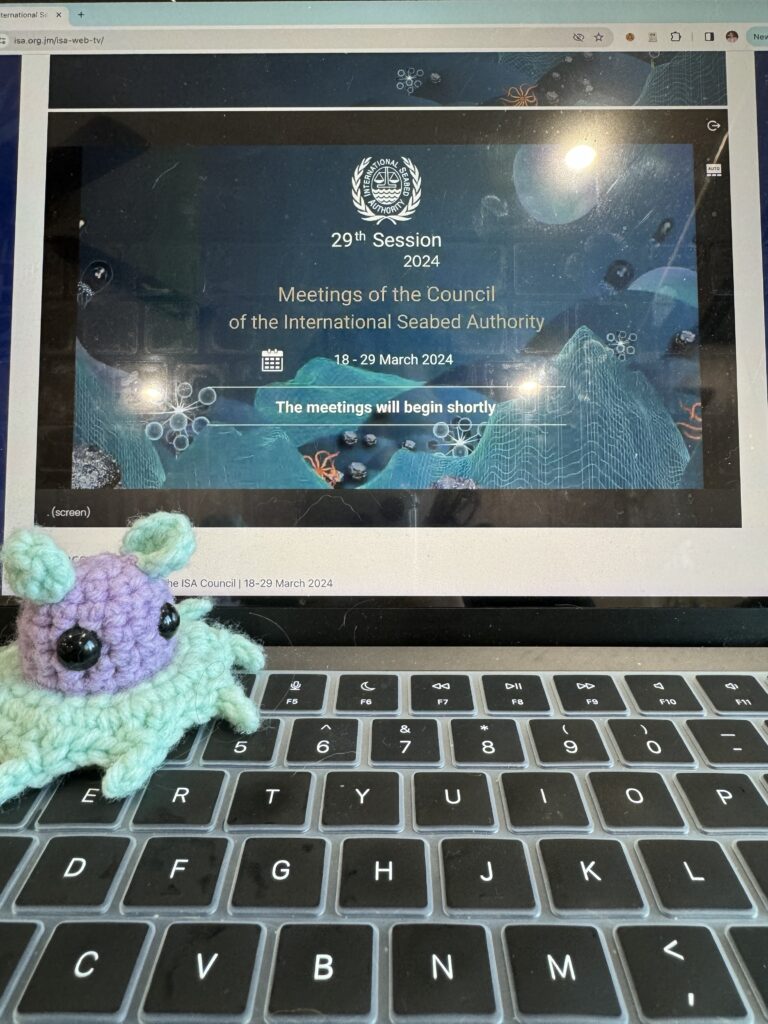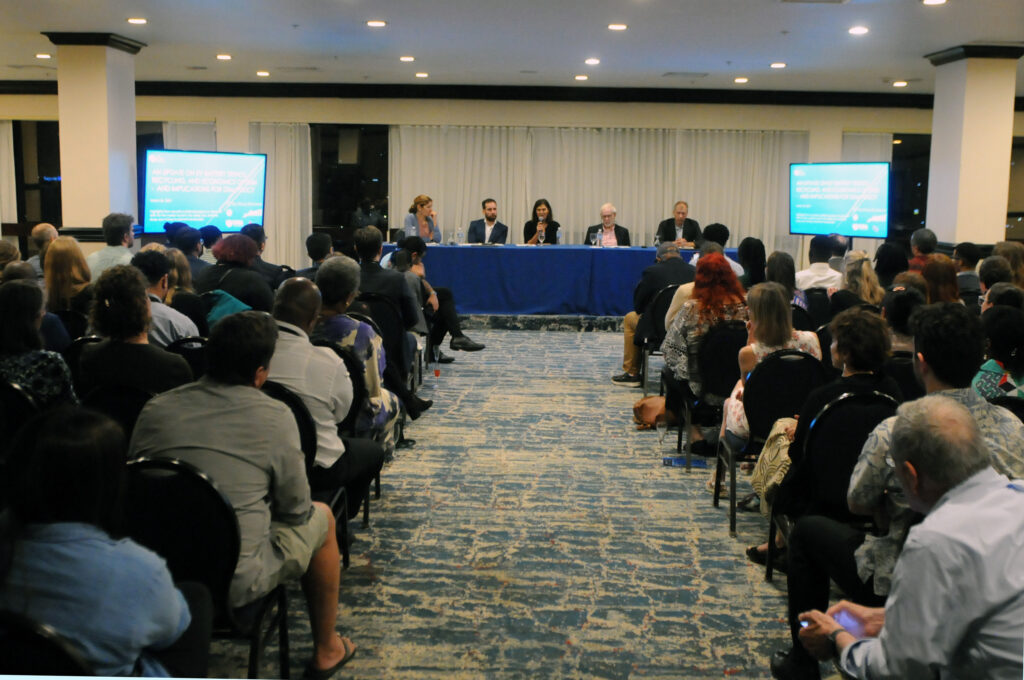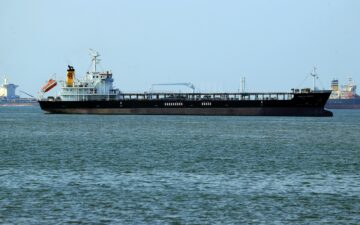The Ocean Foundation’s Deep Seabed Mining (DSM) team is happy to have participated again in meetings of the International Seabed Authority (ISA) in Kingston, Jamaica. Negotiations continue, and despite ongoing cooperation, the regulations are still far from being completed, with divergent views on fundamental concepts blocking consensus on key issues. A peer-reviewed paper published in January 2024 found that 30 major issues in the ISA regulations remain outstanding and that the ISA internal target date to complete the regulations in 2025 is unrealistic. The negotiations continue under the specter of The Metals Company (TMC) submitting an application for commercial mining before the regulations are even finished.
Our key takeaways:
- The Secretary-General was – unusually – not present for one of the most crucial discussions on the right to protest.
- Countries were very interested in the financial flaws and business case faults around DSM, attending a panel discussion featuring TOF’s Bobbi-Jo Dobush.
- An open conversation on Underwater Cultural Heritage (UCH) was held with all countries for the first time – speakers supported Indigenous rights, protecting UCH, and discussed different approaches to including mention of UCH in the regulations.
- Countries were only able to discuss about ⅓ of the regulations – Given that recent conversations at the ISA have been largely focused on preventing mining without regulations, not whether to do so, any company attempting to “force” the ISA Member States to process its application to mine in the absence of regulations would likely be disappointed.
On March 22, the entire afternoon consisted of a discussion on the right to protest, prompted by a series of papers by the Secretary-General following Greenpeace’s peaceful protest at sea against The Metals Company. The Secretary-General was – unusually – not present for the discussion, but 30 ISA Member States, countries who have agreed to follow the provisions of the United Nations Convention on the Law of the Sea, engaged in the conversation, with a large majority directly reaffirming the right to protest, as confirmed by the November 30, 2023 Dutch Court ruling. As an accredited Observer organization, The Ocean Foundation intervened to caution that protests at sea are just one of many disruptive and expensive forms of opposition that anyone pursuing, sponsoring, or financing seabed mining might reasonably expect moving forward.

On March 22, the entire afternoon consisted of a discussion on the right to protest, prompted by a series of papers by the Secretary-General following Greenpeace’s peaceful protest at sea against The Metals Company. The Secretary-General was – unusually – not present for the discussion, but 30 ISA Member States, countries who have agreed to follow the provisions of the United Nations Convention on the Law of the Sea, engaged in the conversation, with a large majority directly reaffirming the right to protest, as confirmed by the November 30, 2023 Dutch Court ruling. As an accredited Observer organization, The Ocean Foundation intervened to caution that protests at sea are just one of many disruptive and expensive forms of opposition that anyone pursuing, sponsoring, or financing seabed mining might reasonably expect moving forward.
On March 25th, our DSM lead, Bobbi-Jo Dobush, participated in a panel event on “An Update On Electric Vehicle Battery Trends, Recycling, And Economics Of DSM.” Bobbi-Jo questioned the business case for DSM, noting that high costs, technical challenges, financial developments, and innovations have undermined the potential for profits, raising serious questions about the ability of mining companies to remediate environmental damage or provide any return to Sponsoring States. The event had 90 attendees from over 25 country delegations and the ISA Secretariat. Many participants shared that this type of information had never been put forth in a forum at the ISA.

Since the last ISA session in November, we have been continuing work ‘intersessionally’ to advance the protection of cultural connection to the ocean, including via the concept of underwater cultural heritage, both tangible and intangible. A session on intangible heritage had been slated for an “informal informal” meeting which would not have allowed anyone not representing a country to speak, thus excluding the voices of Indigenous people joining the conversation on non-governmental organizations (NGO) delegations, etc. However, such meetings were done away with for the current session, as countries and civil society spoke out against such a working method. During the short hour-long session, many countries engaged for the first time, discussing the right of Free, Prior, and Informed Consent (FPIC), the historical barriers to Indigenous peoples’ participation, and the practical question of how to protect intangible cultural heritage.
We look forward to the July ISA session, consisting of both Council and Assembly meetings (more on how the ISA works can be found here). Highlights will include the selection of a Secretary-General for the upcoming term.
Many countries have said they will not approve a work plan to mine without finishing DSM exploitation regulations. The ISA Council, the body responsible for the decision, has made two resolutions by consensus, stating that no work plans should be approved without regulations.
Despite the resolutions, TMC’s Chief Financial Officer stated in October 2023 that
“[w]hether [the International Seabed Authority] has finalized what the legal framework for deep-sea mining will look like or not, we’ll file our permit application and force them to process it.”
On the company’s March 25, 2024 investor call, its CEO assured investors it expects to start nodule (the mineral concentrations under target) mining in the first quarter of 2026, confirming that it intends to submit an application following the July 2024 session. Given that recent conversations at the ISA have been largely focused on preventing mining without regulations, not whether to do so, any company attempting to “force” the ISA Member States to process its application to mine in the absence of regulations would likely be disappointed.






